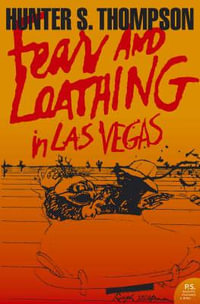This 2005 book explores the evolution of Americans' first way of war, to show how war waged against Indian noncombatant population and agricultural resources became the method early Americans employed and, ultimately, defined their military heritage. The sanguinary story of the American conquest of the Indian peoples east of the Mississippi River helps demonstrate how early Americans embraced warfare shaped by extravagant violence and focused on conquest. Grenier provides a major revision in understanding the place of warfare directed on noncombatants in the American military tradition, and his conclusions are relevant to understand US 'special operations' in the War on Terror.
Industry Reviews
"Read it as a clear, informed survey of the lesser-known wars of early American history, or as a strongly argued reinterpretation of the pattern and relevance of early American military experience, John Grenier's excellent book earns a place on the short shelf of essential books in U.S. military history." -John Shy, Professor Emeritus of History, University of Michigan, Ann Arbor "John Grenier demonstrates convincingly that there was an American way of war in the colonial and revolutionary eras, which was before the time when previous historians have acknowledged the beginnings of an American pattern of conflict. This earlier form of warfare was in some respects far more brutal and devastating than what came later; but the tendency to blur the differences between civilians and combatants has remained a troubling part of our martial heritage. Grenier's impressive volume will require us to rethink the contours of American military history." -Don Higginbotham, Dowd Professor of History, University of North Carolina at Chapel Hill "The First Way of War offers an important reminder that early Americans fought their wars in a variety of ways. One way was largely designed for Indians, depended on unconventional methods, and could be terrifyingly violent. Based on wide and deep research, Grenier surveys a variety of wars between American colonists and Indians, covering both familiar and rarely-tread ground, and details the different techniques tried, adopted, and sometimes discarded as the colonists struggled to find a way to defeat a resilient and resourceful enemy. This is a significant contribution to the increasingly complex and subtle field of early American military history." -Professor Wayne E. Lee, Department of History, The University of Louisville "Grenier makes a strong case that a distinctive method of American warfare emerged during the colonial era. The author has the rare facility of combining an exciting narrative with thought-provoking analysis. A well-researched and well-written book that deserves serious consideration." -Brian McAllister Linn, Texas A&M University "The First Way of War is a well-crafted and exhaustively documented piece of scholarship, with each footnote an authoritative mini-bibliographical essay." -Thomas W. Cutrer, Arizona State University, Military History "...Grenier's study reveals North America's four-hundred-year continuum of irregular warfare and challenges Americans to confront the stark realities of their 'martial culture'." -Kevin T. Barksdale, Marshall University, The Virginia Magazine of History and Biography "The book works well as an overview of warfare in eastern North America in the seventeenth and eighteenth centuries. Grenier's long perspective usefully conflates a multitude of little wars into a long-term struggle between Europeans and native peoples for survival and dominance in North America, a struggle that climaxed in the British triumph in the French and Indian War." -Andrew Cayton, Miami University, The International History Review "well-written monograph...thanks in part to Grenier's lucid prose, we have an excellent analysis of how Americans waged unlimited war from the early colonial period to the beginning of the Republic." -John Richard Mass, Ohio State University, The North Carolina Historical Review "The book's strength lies in its recognition and treatment of the asymmetrical dimension of war as it relates to societies and cultures in general...Grenier's book is lucid and well-written" -MAJ Joseph P. Alessi, USA, Military Review "[Grenier] has addressed the arguments of would-be critics like myself with a sound analytical framework and a well-researched and well-presented narrative. Scholars of American history and of military history will find this book thoughtful and highly provocative." -Guy Chet, University of North Texas, American Historical Review

























